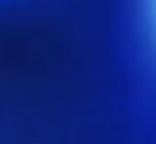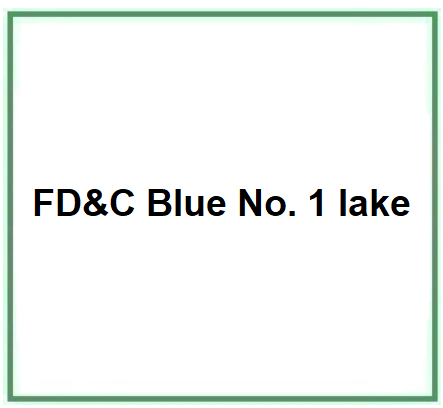FD&C Blue No. 1 lake is a chemical compound, a dye mainly used in cosmetics and FD&C Blue No. 1 is better known by the name Acid Blue 9 or Brilliant Blue FCF or FD&C Blue No. 1.
It appears as a powder or blue liquid.

The name defines the structure of the compound:
FD&C Blue No. 1
- FD&C stands for Food, Drug, and Cosmetic. This designation means that the dye is approved by the US Food and Drug Administration (FDA) for use in food, drugs, and cosmetics.
- Blue No. 1 is the specific name given to the synthetic blue dye. It is also known by other names, such as Brilliant Blue FCF and its colour index number, CI 42090.
CI 42090
- CI stands for Colour Index, a reference database maintained by the Society of Dyers and Colourists and the American Association of Textile Chemists and Colourists. The Colour Index assigns unique numbers to each dye or pigment.
- 42090 is the specific Colour Index number assigned to a synthetic blue dye known as FD&C Blue No. 1 or Brilliant Blue FCF.
The synthesis process takes place in different steps:
- Production of basic compounds. The first stage begins with the production of basic compounds such as aniline, a benzene derivative, in reaction with other chemicals to produce a compound called sulphanilic acid.
- Diazotization. Sulphanilic acid is diazotised by converting an amine group of sulphanilic acid into a diazonium compound.
- Coupling. The diazonium compound is coupled with another compound, typically an H acid (8-amino-1-naphthol-3,6-disulphonic acid). This coupling reaction leads to the formation of the bright blue dye FCF.
- Purification. The dye is purified, typically through a washing and filtration process.
Cosmetics
It was admitted to the list of authorised colourants in cosmetic products by Directive 76/768/ECC.
It is used as a direct colouring agent in hair colouring products. Its concentration in the finished cosmetic product must not exceed 0.5%. It is also subject to cosmetic restrictions IV/63 and III/190.
Food
In the food industry, it is included in the list of colouring food additives under the number E133. In 1970 FAO/WHO Expert Committee on Food Additives established an acceptable daily intake (ADI) of 0-12.5 mg/kg body weight. The Scientific Committee on Food of the EEC recommended an ADI of 10 mg/kg body weight in 1983.
CI 42090 Acid Blue 9 studies
Molecular Formula: C37H42N4O9S3- Molecular Weight: 782.942 g/mol
- UNII: 86R7G3C26F
- CAS: 2650-18-2 1334-07-2 29519-65-1 37307-55-4 37307-56-5 37307-78-1 51609-24-6 55819-29-9 86924-52-9 99149-43-6 511534-54-6
- EC Number: 220-168-0 223-339-8
- PubChem Substance ID 329769043
- MDL number MFCD00012141
- Colour Index Number 42090
Synonyms:
- Erioglaucine A
- Acid Blue 9
- C.I. Acid Blue 9
- Erioglaucine
- E133
- Kiton Pure Blue L
- Pro-Jet Blue OAM
- Erioglaucine (VAN)
- Daiwa Blue 109H
- Japan Blue 205
- Eriosky Blue
- Amacid Blue FG Conc
- Duasyn Acid Blue AE
- Orient Water Blue 9
- Schultz No. 770
- Caswell No. 007A
- CI Direct Brown 78
- Edicol Supra Blue E6
- Vitasyn Blue AE 85
- AF Blue No. 1
- Alphazurine (indicator)
- Xylene Blue VSG
- Acid Sky Blue A
- Alphazurine FG
- Erioglaucine E
- Alphazurine FGND
- Neptune Blue WF
- Fenazo Blue XR
- Patent Blue AE
- Calcocid Blue EG
- Kiton Blue AR
- Neptune Blue BRA
- Patent Blue 2Y
- Tortrazine C extra
- Calcocid Blue 2G
- Water Blue 9
- Bucacid Azure Blue
- Hidacid Azure Blue
- Acid Blue AE-SF
- Bleu Brilliant FCF
- Brilliant Blue Lake
- Aizen Brilliant Blue FCF
- Maple Brilliant Blue FCF
- C.I. Direct Brown 78
- Triantine Light Brown 3RN
- Acilan Turquoise Blue AE
- Peacock Blue X-1756
- CI ACID BLUE 9
- CI Acid Blue 9, diammonium salt
- D and C Blue No. 4
- Duasyn Acid Blue AE-SF
- A.F. Blue No. 1
- C.I. Acid Blue 9, diammonium salt
- Dolkwal Brilliant Blu
![]() FD&C BLUE #1 LAKE
FD&C BLUE #1 LAKE 


